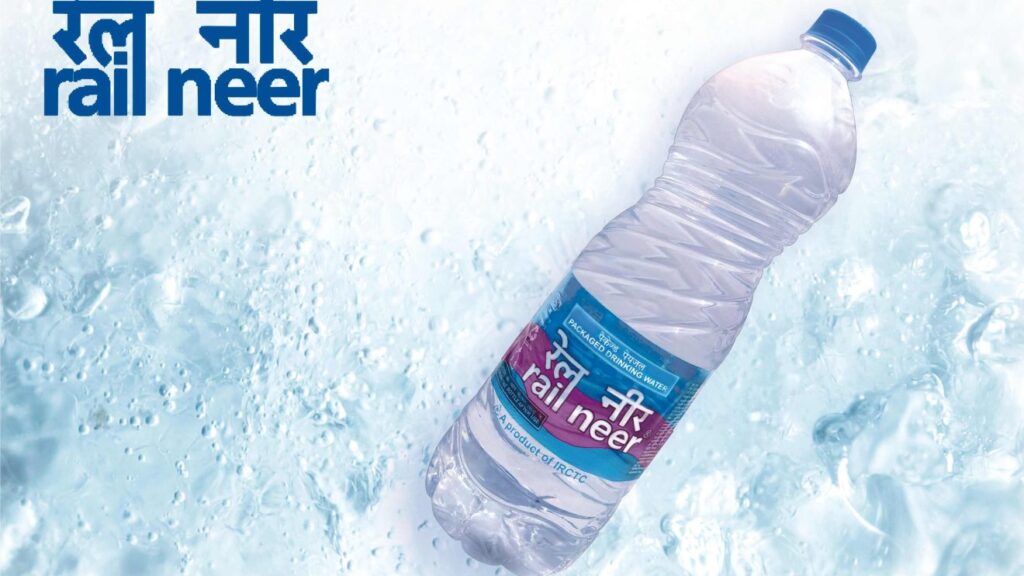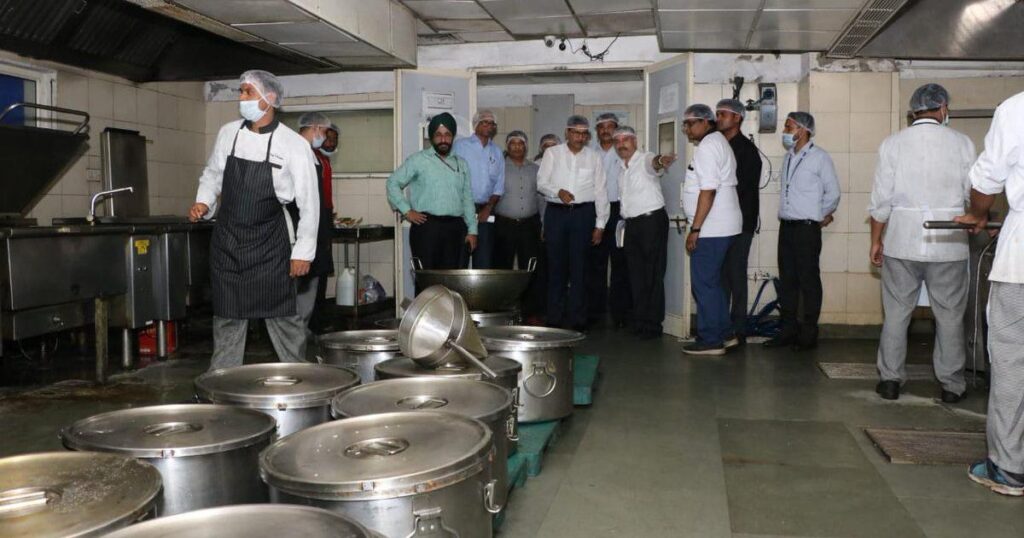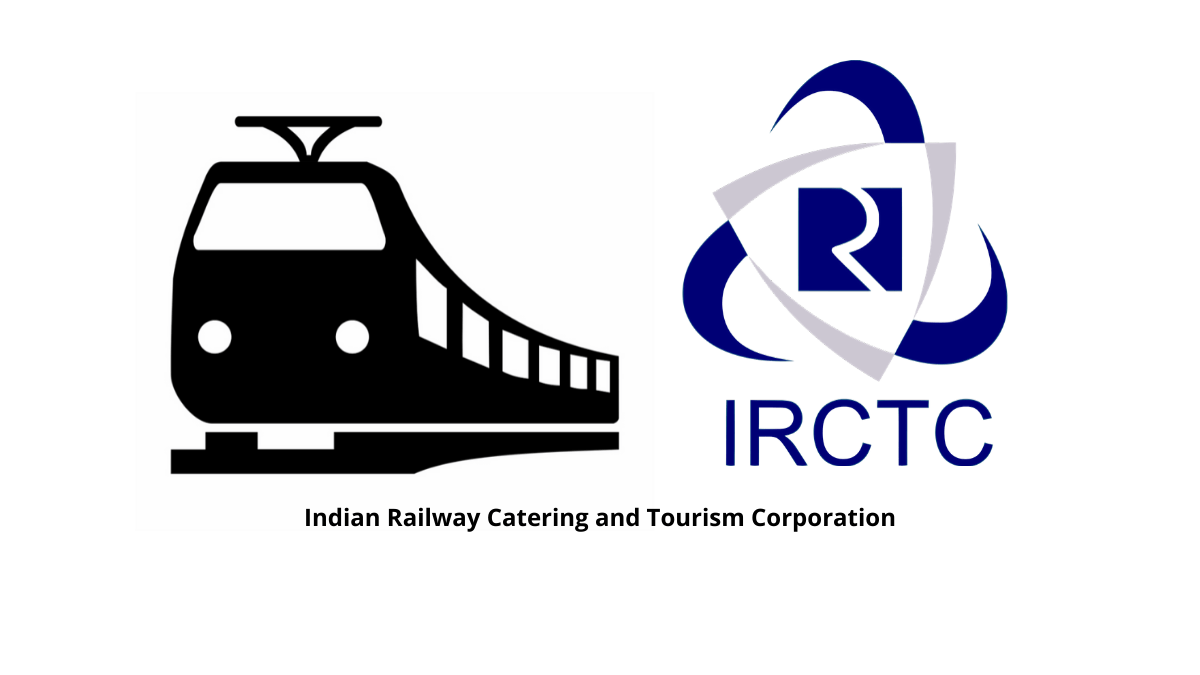The Indian Railways (IR), more than 150 years old, is among one of the largest and oldest systems in the world, fondly called by railway persons as the “Lifeline of the Nation”. With an extensive network spread across the country, Indian Railways plays a key role in the social and economic development of India. IR is a principal mode of transportation for long haul freight movement in bulk, long-distance passenger traffic, and mass rapid transit in a suburban area. It occupies a unique position in the socio-economic map of the country and is considered as a vehicle and barometer of growth. It is also the biggest state-owned enterprise in India and contributes about 1% of India‘s Gross Domestic Product (GNP).
Indian Railways, on one hand, is seen as a government department with mandatory service obligations and on the other, is expected to function as a commercial organization, financially self-sufficient. IR provides the most energy-efficient and economical mode of transportation in India.

Indian Railway Catering and Tourism Corporation Ltd. (IRCTC) is a Public Sector Enterprise under the Ministry of Railways. IRCTC was incorporated on 27th September 1999 (and began full-fledged operations on 3rd August 2002) as an extended arm of the Indian Railways to upgrade, professionalize and manage the catering and hospitality services at stations, on trains, and other locations and to promote domestic and international tourism through the development of budget hotels, special tour packages, information & commercial publicity and global reservation systems.
While discharging its mandate, the Company has made a significant mark in its passenger-services oriented business lines like setting up of Food Plazas on Railway premises, ‘Railneer’, Rail Tour Packages, Retailing, Hotel Accommodations and ‘Internet Ticketing’ bringing a great deal of professionalism into the operations. In addition to the above, IRCTC will be primarily responsible for running Food Plaza, Food Courts, and Fast food units, etc. across the Indian Railway Network.
IRCTC also started a non-railway catering project under which the cafeteria was operated in many Indian ministries and institutes. IRCTC aims to provide hygienic, good quality affordable food to the traveling public by adopting the best trade and hospitality industry practices. It has an inclusive approach
where from the least advantaged passenger to the relatively affluent will be provided catering services in a socially responsible manner.
The IRCTC was listed on the National Stock Exchange in 2019, following which the Government of India’s holding was reduced to 87%, with the remaining shares being publicly traded.In December 2020, the Government of India divested another 20%, reducing its holding in the IRCTC to 67%
Catering and Hospitality
Mobile & Static units including food plazas, FFUs & NRC Units
The corporation is left with 41 mobile units (including Duronto), four base kitchens, 14 Jan Aahars & 10 refreshment rooms after the complete transfer of licensing units and partial transfer of departmental units.
Mobile Catering
IRCTC is providing catering in all newly introduced Duronto Trains. 39 mobiles units are under the management of IRCTC. Ministry of Railways has directed to continue to manage Duronto trains including newly introduced Durontos.
Static Catering
In respect of static catering, few residual departmental and licensee-operated units are still with IRCTC Which are likely to be transferred to zonal railways. The corporation has added 12 food plazas/ fast food units taking the total to 107.
Executive Lounges
In the month of September 2011, the Ministry of Railways has directed IRCTC to undertake setting up of “Executive Lounges” at Railway stations to provide pre-departure and post-arrival comforts to Railway passengers, on the lines of lounges at airports and has approved 50 locations on Indian Railways network to provide the facility of “Executive Lounge”. In line with the above directives, IRCTC has taken up setting up and management of Executive Lounge at New Delhi station as a pilot project which is likely to be commissioned in 2012-13. Ministry has also approved 50 locations on the Indian Railways network to provide the facility of “Executive Lounge” at stations.
Central Kitchen
Inaugurated in the year 2011, the Corporation opened a State of Art Central Kitchen (food factory), in Noida. In the month of August-2011, the production of dry snacks such as assorted Sandwiches was started, the cooked food production and supply was started in February 2012, after completion of the trial phase. The Kitchen has a built-up area of 40000 Sq.ft. has the capacity to produce 10000 meals per day in the first phase, with the provision to produce 25000 meals per day in the 2nd phase. This is one of its kind ultra-modern food factories and is in line with the best flight catering kitchen.
It is fully equipped with state of the art equipment from India and abroad. Both veg and non-veg meals are being prepared for supply to Railways and Corporate clients. Indian snacks and sweets items are being prepared in a most hygienic manner for which a separate section has been earmarked in the kitchen. Presently, Central Kitchen is supplying around 6000 evening snacks to all Departmental Rajdhani trains and also serving approx. 3000 meals to corporate clients in Noida/Greater Noida area.
Non-Railway Catering
The Corporation has diversified into related areas like – Facility Management, Food Parks, Budget Hotels, Motels, Hospitality Hubs, Hospitality institutes, etc. by harnessing the existing capabilities. The Corporation is also exploring the field of commercial catering at Malls, Business Centers, and Institutional Catering, etc. 44 nos. of NRC units were added in 2012-13, taking the total number of NRC units to 83.
The following are the main sub-segments of the NonRailway Catering areas:
(a) Catering: Institutional Catering, Office Catering, Events Catering and management, Industries
Catering, Highway Catering, Sports Catering, and Metro Catering.
(b) Facility Management: Housekeeping Services, Front Office Management, Laundry Services, Security Services, Horticulture Services, Pantry Support Services, Maintenance, and other related services.
(c) Management of Hotels & Guest Houses: Provision of Catering Services (Cafeteria and
Room Services), Provision of housekeeping services, Laundry Services, Security Services, Horticulture, Maintenance, and other related services.
Also Read: Indigo Airlines – Making India’s Dream Of Flying Affordably True
Budget Hotels
IRCTC having experience in managing Budget Hotels/Rail Yatri Niwases has approached State Tourism Board and State Industrial Corporation such as Punjab, Haryana, Chhattisgarh, West Bengal, Bihar, Tamilnadu, Kerala, etc. to provide space for setting up of Budget Hotels.
Internet Ticketing
E-ticketing has been one of the biggest success stories of e-governance in India and has revolutionized the way the common man deals with the railway. It has resulted in great benefits in terms of convenience, time & energy saving as well as transparency. IRCTC is in the process of further enhancement of the existing infrastructure to further improve services to the customers. IRCTC ticketing website continues to be considered a benchmark in the e-commerce industry. The numbers of transactions on the website are among the highest on the Asian Continent.
IRCTC is now looking at adopting technologies of the future to keep up with the changing technological environment. It has introduced an e-wallet option that has become hassle-free for the users. Ticketing through mobile is one such measure taken up during the year. Keeping in view the large number of mobile users in the country and the huge potential of this medium, IRCTC has launched the website https://www.irctc.co.in/mobile for ticketing through mobile phones. IRCTC mobile website is convenient and easy to use, can be accessed from any browser-enabled mobile having basic GPRS activated on phone. On 31st December 2020 IRCTC’s upgraded e-ticketing website was launched.
Travel and Tourism
The corporation has made significant progress in the Travel and tourism sector of the business. IRCTC has entered into an understanding with various governments to run Tirth Yathra trains for senior citizens, running 97 such trains carrying over 90000 passengers.
In 2020, the IRCTC began operating India’s first private train, the Tejas Express, from Lucknow to New Delhi, and from Ahmedabad to Mumbai.
IRCTC has a vision “To be the leading provider of high-quality travel and tourism services in the country”. The Corporation is planning to further expand the tourism business in the coming years by expanding existing business lines as well as developing of new lines such as Corporate travel, inbound as well as outbound travel services for individual travelers, institutional travel, etc.
Railneer
To enhance passenger amenities, the IRCTC launched Rail Neer, a branded packaged drinking water for the rail commuters. Rail Neer is processed, purified, and bottled at state-of-art plants. Completely automatic plant and no manual handling of product water at any stage. IRCTC stands for quality and has a key role in ensuring service and product of the highest quality for the rail passenger as well as a visitor to any railway premises.
To address the issue of wastage of drinking water, steps are being taken to set up a production line for a 500 ml bottle at the Nangloi plant. The 500 ml Rail Neer bottles was served in Shatabdi trains having traveling time up to 5 hours. In Railways, three departments, including the commercial,
mechanical and health wings are responsible for proper maintenance of the pantry cars and the quality of food.

Departmentally Managed Units shall serve as a beacon of excellence and define the quality paradigm for the licensee catering units. These units will be subject to rigorous monitoring and supervision through routine, surprise inspections, and checks. A complaint monitoring cell was set up at zonal railway headquarters and divisional offices wherein all complaints received through complaint books, emails, SMS should be collected and a mechanism is devised to acknowledge the complaints/feedback within 24 hrs. Action taken on complaints should be monitored by the CCM of the zonal railway and DRM of the divisions on a monthly periodical basis. Complaints of repetitive nature should be taken up sternly.
As a part of quality monitoring , round-the-clock control monitoring, a central catering monitoring cell (CCMC) has been set up in New Delhi wherein the passengers convey their complaints through a toll-free telephone no.1800-111-321.
Impact on Public Health
IRCTC has a positive impact on the public through its various practices, initiatives, and various measures taken by them. Some of them are:
- Rigorous hygiene and quality parameters for its all Franchisees
- The manual on quality for food & personal hygiene will define good hygiene practices to be followed in base kitchens, fast food units, food plazas, food handling, mobile pantry cars, and catering services at stations.
- All personnel should be aware of their food and personal hygiene responsibility to maintain the highest standard of food and personal hygiene.
- Hazard analysis critical control point (HACCP) is a food handling and operation approach that promotes food safety by identifying food hazards and applying and monitoring necessary control measures at point‘s critical safety.
- The HACCP approach is being actively encouraged for ensuring food hygiene it is necessary to maintain a high level of cleanliness within food premises (where food is stored, prepared, and processed) and to ensure that prepared and raw food kept separate.
- With the view to ensuring high-quality hygiene, cleanliness, and use of standard ingredients for food served in trains, the mobile catering units will pick up meals from the nominated base kitchens. Pantry cars of Rajdhani express trains / Duronto trains should be designed to ensure that pre-cooked are hygienically packed or supplied from base kitchens with minimum handling in transferring the same to the passengers. Lightweight compact trolleys will be used on trains to ensure food is not kept on the floors of the trains at the time of service. Since there shouldn‘t be any cooking and grinding on board, food should be served in pre-set trays.
- IRCTC mechanism of monitoring of catering services including inspections, quality checks, and round the clock monitoring helps in curtailing the complaints regarding foodservice operations. Licensee managed the units are subjected to regress monitoring and supervision through routine, surprise inspections and checks.

-
- Efforts made constantly to upgrade the skills of the staff by having tie-up with reputed institutes such as IHM‘s and modernization of units by inducting appropriate technology and methods.
- A system for compliant addressing mechanism is brought in place to provide a proactive and effective solution. The compliant monitoring cell has been set up both zonal wise and central control for round the clock quality monitoring.
- Franchisee shall maintain ISO:22000 Standards and relevant international standards in vogue from time to time for the fast-food units.
- It has been absorbed that most of the fast-food outlets have been delivering consistency in quality because of the standardization policies and procedures.
- As per the policy, commercial officers, catering officers, Railway doctors, and health inspectors are empowered to do the quality checks.
- External food auditing agency was appointed to audit the services and provide unbiased feedback through the customer satisfaction survey.
- First Aid, Energy conservation, and Sustainable practices through CSR initiatives, IRCTC is determined to deliver quality services across its network.
To read more content like this, subscribe to our newsletter.




